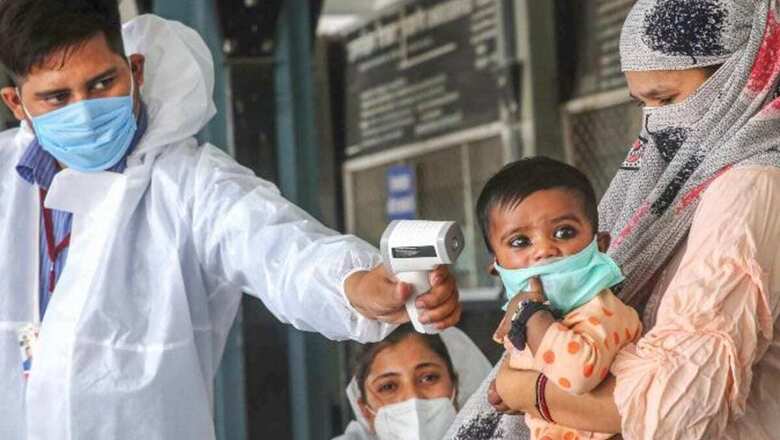
views
Until a few weeks ago, India did not report any abnormal immune response in children who had suffered from COVID-19. It was widely believed that a milder form of the virus was affecting children.
However, doctors in Mumbai and Delhi are now reporting cases of what is known as Kawasaki disease or Multi-system Inflammatory Infection Syndrome in children.
Such cases have been reported from the paediatric wards of a handful of hospitals in Delhi, including Kalawati Saran, Sir Gangaram Hospital and BLK Hospital.
According to doctors, earlier it was believed to be Kawasaki Disease, but now it has been conclusively established that it is Multi-system Inflammatory Infection Syndrome.
It inflames blood vessels and mostly affects children below five years of age. This usually happens two-three weeks after getting infected. It is either as an outcome of COVID-19 itself or because of the immune response.
Dr Dhiren Gupta, senior consultant, pediatrics department, at the Sir Ganga Ram Hospital, said in the past few weeks there have been patients who exhibited Kawasaki-like syndrome.
“There is a presumed link of this to past COVID-19 cases, as either some of these patients were found to be COVID-positive or with antibodies in response to COVID 19,” he said. There are at least 12 such cases in the hospital.
What, however, is worrying doctors is the fact that the cases have been more serious than a regular case of Kawasaki. This is a new concern there is little information about the risk factors for this disease.
Classical symptoms are fever for three-five days, redness of eyes and lips. In serious cases, the fever could last longer, there could be a drop in blood pressure levels and change in echo cardiogram patterns.
AIIMS Delhi Director, Dr Randeep Guleria, said this is a separate syndrome but it is like Kawasaki or Multi-system Inflammatory Syndrome in Children.
“They have a hyper-immune response which affects multiple organs in the body. This happens even after three-four weeks after the disease. Multi-system inflammation is what is seen in children even after recovery. The virus is not there, but this syndrome is seen. It can cause neurological and cardiac problems,” he said.
Dr Rachna Sharma, senior consultant and in-charge in paediatric critical care unit of BLK hospital, has treated such patients successfully.
She said there have at least two similar cases at the hospital and both of them presented with poor heart functions requiring ventilation support and medications to increase their blood pressure. Both were older kids aged 13 and nine years, she added.
“The 13-year-old child presented with high grade fever and rashes. As the fever persisted, the parents got anxious and got COVID-19 testing was done which came positive. The child had to be admitted in BLK hospital as he started having increasing fever spikes with pain in abdomen, vomiting and poor oral intake,” she said.
The blood test for inflammatory markers (D- dimer, ferritin, LDH, IL6) and heart enzyme (troponin) were markedly elevated. A baseline ECHO found the heart function to be normal.
“The child remained stable for next 24 hours but the situation turned bad later. The child became drowsy and his blood pressure dropped. His hands and feet became cold and bluish. Another ECHO showed his heart function had deteriorated markedly. He required ventilation (non-invasive) support along with medication. Immune therapy was also given,” she added.
The disease which had progressed from a simple fever to a more serious situation affecting his heart, kidney and brain was picked up on time and improved with early intervention, Dr Sharma said.
His heart function improved and he came off ventilator after three days and went back after 10 days of hospital stay.
The nine-year-old patient, who was admitted with complaints of fever, loose motions, vomiting and rash, had tested negative for the virus in the RT PCR test.
“The child had gone into a shock with low blood pressure and was referred to us for further management,” said Dr Sharma, adding that initially, the child was suspected to be suffering from typhoid.
But the child's father had COVID-19 infection (RT PCR positive) three weeks ago, so the hospital did an anti-body test on the child. It threw up positive results indicating that the child was exposed to the infection and was asymptomatic.
This condition is very rare and if picked up early can be managed with specific medications to control the immune response, said doctors.
High vigilance for any child with persistent fever, rash, redness of eyes, even without any breathing difficulty or low oxygen saturation should be evaluated and the possibility of MIS-C should be kept, they said.
Children can present with such symptoms up to four weeks of exposure and even RT-PCR tests can come negative.















Comments
0 comment